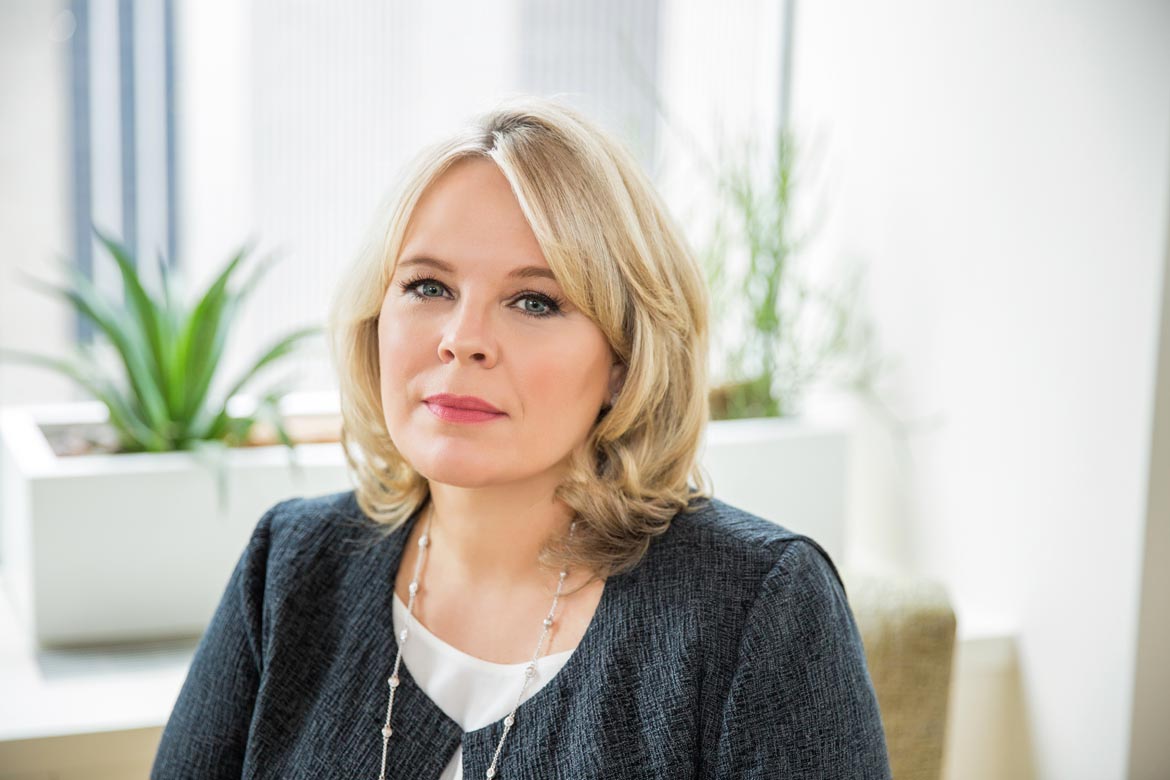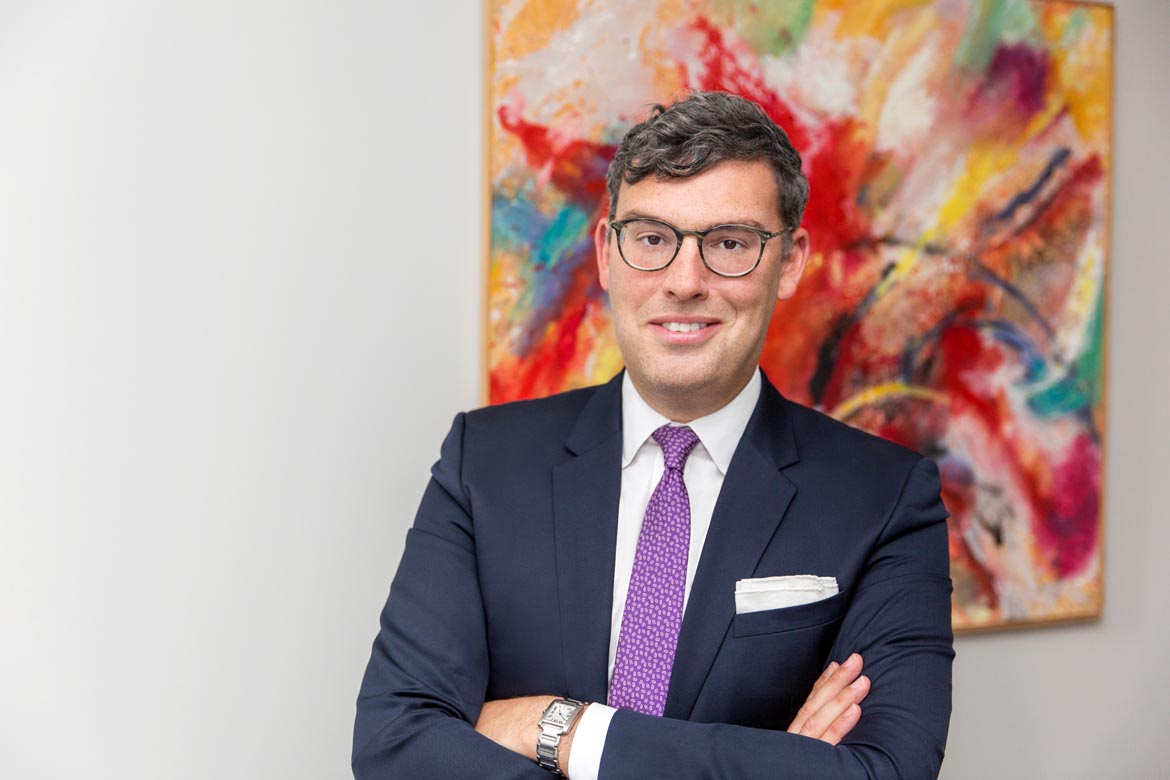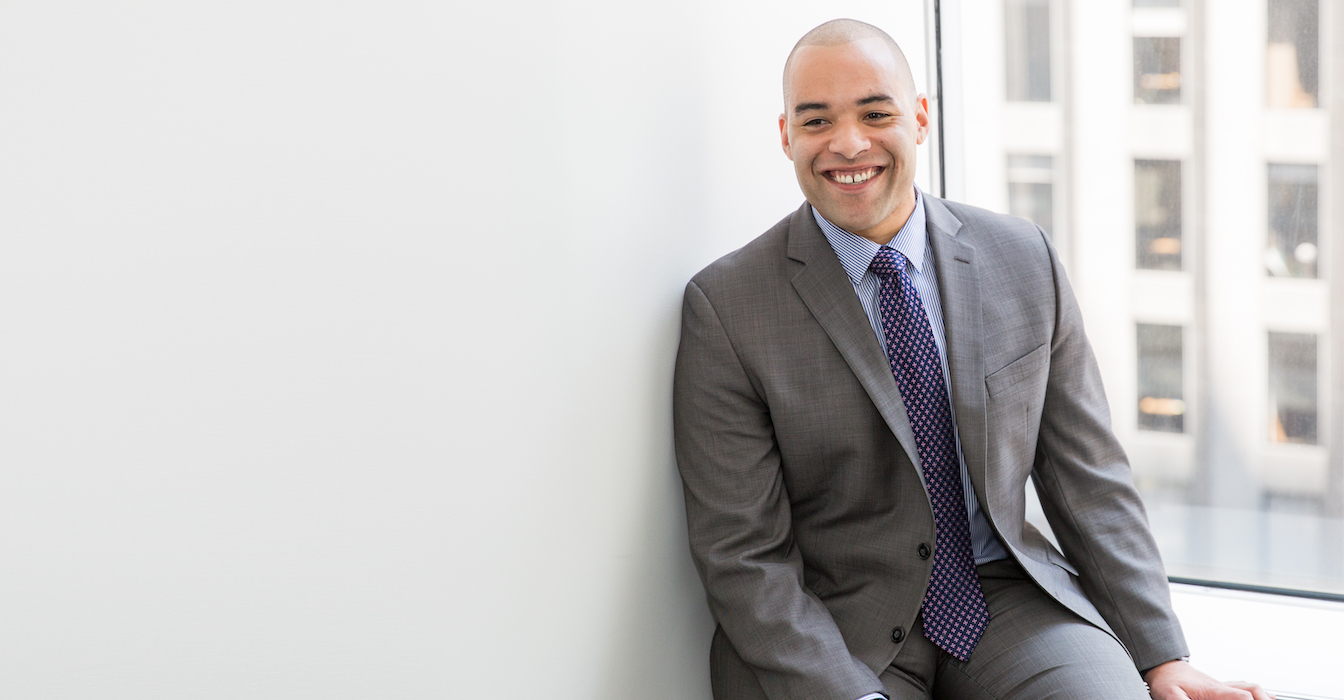Jordan Weatherwax.
In just two years, Selendy Gay has carved a new path for elite law firms, showing that firms can build an inclusive, values-driven team while bringing in billions of dollars in verdicts and settlements.
That's a goal on the forefront for many firms these days as they grapple with a way forward on a number of fronts.
The breakout litigation firm has focused on creating a structurally-inclusive culture fused with fresh philosophies and data-driven techniques to attract diverse talent. And, while the firm is only a couple years old, much can be gleaned from their strategies to retain that talent for the long-term.
Selendy Gay is only interested in the very best legal talent. They want incredibly smart people who love the law as much as they do, and are hungry to invest the time and effort it takes to build a robust practice and get outstanding results for clients.
Top-tier talent, in turn, will want to surround themselves with others who are equally smart, driven, and good at what they do – and that all holds true for diverse talent.
In fact, research suggests that diverse talent may place a premium on firms with established, successful track records. Studies have shown women to be more risk-adverse than men when it comes to their careers, and therefore drawn to more credentialed firms. Fortunately, Selendy Gay has quickly proven themselves to be formidable players in the complex commercial litigation space, scoring successful verdicts and settlements since their founding.
In recent years, the firm has secured a head-spinning $45B in recoveries for their clients, in a near-even mix of plaintiff and defense work. They won more than $800M for the Federal Housing Finance Agency in a residential mortgage-backed securities fraud case against Nomura and RBS; beat back $500M in patent claims against a biotech company brought by Big Pharma; and successfully fought $300M in RICO claims brought against McKinsey & Company over their Chapter 11 disclosures, to name just a handful of their successes.
Selendy Gay is also a shining example in the legal industry of using progressive policies to build an inclusive culture that doesn’t just celebrate diversity, but harnesses that spectrum of talent for greater wins in the courtroom.
While progress has certainly been made, many law firms continue their sluggish climb towards gender parity and racial diversity. Women, who have been attending law school in equal numbers as men for the last several decades, still lag behind in terms of both pay and partnership positions. Women make up roughly 20 percent of firm equity partnerships across the United States and earn on average 80 percent of what their male counterparts are paid, according to the ABA.
The industry fares even worse when it comes to lawyers of color, who constitute just 9.5 percent of partners according to the 2019 National Association of Law Placement Report on Diversity in US Law Firms. The study further reveals that less than 2 percent of partners are African American, with a measly 0.75 percent of partnership positions held by African American women.
How do we bridge the gap? How do we continue bringing diverse attorneys into the ranks? And once they’re there, how do we lower attrition rates?
When Selendy Gay’s founding partners left Big Law (most came from Quinn Emanuel) to form their trailblazing firm in 2018, diversity was more of a natural byproduct of their pursuit of excellence. “We asked ourselves, ‘Who do we want to start a law firm with?’” says founding partner Jennifer Selendy. “‘Who do we most respect and admire and want to work with?’”
The result happened to be a partnership that was over half female, with strong LGBTQ representation.

As they continued to build their team of litigators, the partnership focused on research and data. This involved reviewing studies on implicit bias and employing techniques to overcome it (as we previously reported on), and looking at the burdens that fall disproportionately onto female and minority lawyers, such as childcare.
The founding partners also considered the many studies that demonstrate the increased effectiveness of diverse teams. “We're very data driven and we're very practical,” says Selendy. “We looked at studies showing better boards of directors, better decision making, and better problem solving when you have diverse perspectives.”
The firm has been gender-balanced and richly diverse from the start. “We were a more diverse partnership from moment one, which I think speaks volumes to the incoming lawyers who consider coming to work for us,” says Selendy. Just as talent attracts talent, diversity attracts diversity.
What’s exciting about Selendy Gay is that they're managing to attract both – top-tier talent which also happens to reflect the diversity of the broader population.
“I chose Selendy Gay because I wanted to practice at a litigation shop that takes on difficult legal issues, and is always prepared to litigate to the fullest extent necessary for its clients,” says associate Jordan Weatherwax. “I also wanted a high level of responsibility and meaningful experience as early as possible in my career. The firm has delivered on all fronts.”
Weatherwax’s practice is a mix of white collar and complex commercial litigation. He’s currently representing an individual accused of sanctions violations, and is working for hedge funds and monoline insurers suing for various breaches of contract.
Showcasing another aspect of Selendy Gay that attracts the best young talent, Weatherwax is also handling a timely pro bono suit – a case against the New York Board of Elections in which he and his colleagues are urging a federal court to change New York State’s absentee ballot verification requirements in time for the 2020 election.
The substantive work available to incoming associates is a natural draw for sought-after talent. Selendy Gay is a fast-paced litigation firm that unflinchingly jumps into the ring with the heaviest-weight defense firms, making it attractive for ambitious young litigators of all backgrounds. However, that same upside can dissuade certain recruits.
“Litigation hasn't always attracted as many women and diverse lawyers in the same numbers,” says Selendy, due both to the adversarial nature of the work and lifestyle factors such as long, unpredictable hours and frequent travel.
One aspect of the solution is philosophical, as the partnership works to redefine what success means in their profession. For lawyers in Selendy’s generation, success was defined quite narrowly as securing a partnership position in one of the Big Law firms. If you didn’t make partner, you failed.
"We need to erase the idea that you’ve failed if you join Big Law only to decide that you don't want to work these long hours, you want to have time with your kids, you want to travel less, you want to do government service work or public service work exclusively – that self discovery is everything,” says Selendy.
At Selendy Gay, new recruits understand that they are getting into the foxhole with a tight-knit group that will always support them, no matter which path they ultimately choose for themselves.
“That helps attract more people who may be super, super talented, but may be unsure if this is what they want at the end of the day,” says Selendy. “They're willing to come and give us a try because they know wherever they end up, we are going to be their colleagues. We are going to support them throughout their career and be rooting for them.”
As their positive track record grows, they notice, so does their interest from diverse (and exceptionally talented) young lawyers. “Now that we've had some success and we're walking the walk, the pool of lawyers that we're drawing from is really impressive,” says Selendy. “We don't take it for granted. A diverse team is going to bring more ideas and more creative thinking to the very complex problems that we have to solve for clients.”
The small size of the firm also helps in this regard – they have a single New York office (though they are now working remotely) with 12 partners and around 35 associates. That’s a lean team for the heft and quality of work they're doing, which means no one gets hired just to sweat away endless hours on document review among countless ranks of others doing the same. Each associate is quickly immersed in the team, contributing to matters in substantive ways.
“We encourage all lawyers to have a stake in the case right from the beginning,” says Selendy. "I want the junior-most person on the team thinking about the issues that I'm thinking about and worrying about. What are our trial themes going to be? What is our adversary going to argue against us? How do we reconcile sometimes very challenging client goals or perspectives?”
Associates who love the law as much as the rest of the Selendy Gay attorneys are thrilled to jump into the deep end of cases like this, working alongside the experienced and creative minds of the partners on solving interesting, complex problems.
The smaller size also promotes a nimbleness in the firm, enabling them to adopt progressive practices that often get mired in red tape at larger firms. “If we think there's an initiative we can adopt that will make us be better, then we do it,” says David Flugman, a partner at Selendy who helms the firm’s diversity initiatives.
Earlier this year, Flugman started speaking with his partners about including gender pronouns in email signatures at the firm, in support of transgender and non-binary individuals.
“We brought it to our partnership in a meeting, and within two weeks we rolled it out,” says Flugman, who says a big part of the conversation was the educational aspect. For people who have never had to correct others on which pronoun they prefer, they may not understand the difficulty of doing so, nor the feelings of isolation that can crop up. Therefore they might not appreciate what a difference it makes to have this kind of firm-wide policy.
“With this initiative, we’re creating an environment where it is the norm for people to proactively identify the pronouns they like to be called by, so that it encourages people who are transgender or nonbinary to feel welcome to do the same,” says Flugman.
It’s a great example of a simple change in a firm’s diversity infrastructure that can have a profound impact. It speaks to the partnership’s emphasis on creating a culture that is progressive and inclusive – both because it’s the right thing to do from a human perspective, and the smart thing to do from a business perspective.
“There are all kinds of important reasons for somebody who's transgender or nonbinary to have that freedom and feel that flexibility,” says Flugman. “When someone feels more comfortable and more valued as a person, it only increases productivity.”
Bold clarity surrounding their values, coupled with their nimble size, also positions the firm to respond quickly and meaningfully to larger societal events and issues.
Following the killing of George Floyd this spring, the firm’s reaction was swift and unequivocal.

“The firm almost immediately held an all-hands town hall in which we discussed numerous ways the firm could contribute to racial justice causes,” says Weatherwax. Participation wasn’t required, but 100 people, attorneys and staff, attended.
“The managing partners allowed me and another Black associate to lead the meeting,” says Weatherwax, “and they listened carefully to our recommendations.
“The spring was a very difficult time for me and other Black people around the country, so it was helpful to feel supported by Selendy Gay.”
The moment speaks to another crucial philosophy of the firm when it comes to attracting diverse talents, which is their focus on values. That focus is seen not only in the management style and culture of inclusion, but also in their caseload.
“It's very deliberate how we go about choosing our cases, particularly on the plaintiff side,” says Flugman. “It's a real blessing to be able to choose to take positions and represent clients in litigation to effectuate positive ends, which often flow disproportionately to minorities and other underserved American communities.”
One example is their focus on climate change litigation, such as the pro bono representation of clean energy advocacy group Vote Solar regarding the future of customer-generated solar power in Utah, in which Selendy partner Josh Margolin is working to establish a fair purchase price for solar exports to incentivize their widespread use.
They are also representing the American Federation of Teachers and individual plaintiffs in a case against the U.S. Department of Education and Secretary of Education Betsy DeVos for their gross mismanagement of two loan forgiveness programs designed to encourage students to enter public service with a promise of relief from crushing debt.
“More than 90 percent of the people that applied for this loan forgiveness got denied,” explains Flugman. “The issues here disproportionately impact people of color and women. Seven of our eight individual plaintiffs in the case were women, and the majority of the AFT members are women.” After graduation, the statistics show that women are repaying their loans more slowly than men do, in part because of the gender pay gap. “In terms of the racial impact, statistics show that Black and Latinx student loan borrowers have to take on more debt than their white counterparts due to historical systemic issues and gaps in wealth.”
While working to correct systemic inequalities through their legal work, the firm continues to turn their gaze inwards, celebrating their successes but also forever determined to do better.
“We’re not doing as well as we’d like on race,” says Selendy, referring to the lack of racial diversity in their partnership ranks. They do, however, have a significantly diverse associate base, with over 30 percent identifying as people of color. And because they’re a small firm where associates get high-level experience, every voice is listened to, and the culture and policies all promote inclusiveness, they’re better positioned than many firms to develop a diverse partnership in the coming years.
“The most important value that I think we share is our commitment to constantly be evolving, innovating, educating, and learning,” says Flugman.
Flugman, who is gay, has found a lot of value in connecting with other LGBTQ lawyers through organizations such as the National LGBT Bar Association. “I’ve found that one of my greatest strengths in terms of my ability to connect with people is in that community,” says Flugman. He encourages his colleagues in other marginalized communities to “use their diversity as a strength, as a business opportunity,” through things like networking and participating in panel discussions.
“We encourage our associates to choose some type of conference or event every year,” says Flugman. "We pay for them to go, and someone from our marketing team will go with them and actually help coach them in real time on how to walk up to people, how to talk about themselves, the work they're doing, and our firm.”
Through these efforts, they are training young associates from all backgrounds to develop client relationships and generate business. It's another aspect of nurturing diverse talent that too often gets short shrift at Big Law firms.
It’s also another indicator that the efforts at Selendy Gay to attract, nurture and retain diverse talent just make good business sense. They understand the value of a diverse team, and they make a real commitment to invest in all of their associates because they recognize that their incredible work product and service to clients is always dependent on their people.


